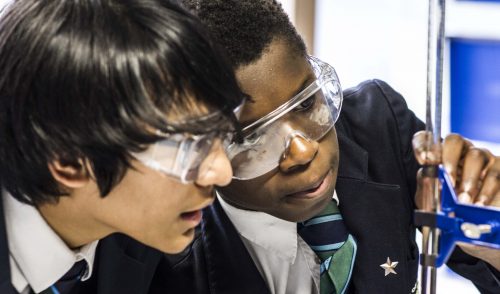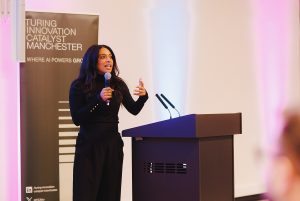LJMU awarded £44k to promote chemistry to pupils in ‘hard to reach’ areas

Liverpool John Moores University has been awarded £44,000 to expand an innovative chemistry outreach scheme to encourage young people from 11 schools across deprived areas of Liverpool City Region to become the scientists of the future.
Funding for the ‘Shaping Futures with Chemistry’ scheme has been awarded through the Merseyside Collaborative Outreach Programme (MCOP).
It builds on LJMU’s Royal Society-backed ‘Chemistry for All’ scheme, now in its fourth year.
LJMU scientists and students will work with an additional five local schools in Knowsley, St Helens, Wirral and a new area, Halton, to provide engaging and enriching chemistry activities both in school and LJMU’s campus.
The new funding will also benefit an extra year group in two existing partner schools, Bebington High School and All Saints Catholic High School, as well as additional priority schools with sixth forms offering A-level chemistry.
Liverpool was ranked among the most deprived areas according to the English Indices of Deprivation 2010 with just over half (51%) of all neighbourhoods classified in the most deprived category nationally.
This figure fell six percentage points according to the 2015 Index, which was comparatively small compared with other areas.
In addition, a report by the Campaign for Science and Engineering also highlighted that just 25% of students entering higher education to study physical science in the academic year 2009/10 came from deprived areas.
‘Shaping Futures with Chemistry’ project lead and reader in Crystallisation Science, Dr Linda Seton, said: “We are delighted to have won this funding, building on our previous success in bringing the excitement of science to young people and inspiring them to consider university.
“The programme will let young people get hands-on in a lab environment both in their own school and in our campus – activities are based on real-life situations that pupils find exciting and we will combine this with other skills in literacy and numeracy so they are equipped and confident in seeing themselves as the scientists of the future.”
Pupils involved in the scheme will take part in fun activities including a ‘chemistry at the crime scene’ day, which reflects the work of forensic chemists and the ‘chemistry of food’ where they perform analytical tests on foodstuffs to determine the iron content and check that they do not contain unlawful colours.
Shaping Futures have also funded a full time project officer to work within the outreach team to deliver a new mentoring project with the aim of raising attainment and improving the level of progression into higher education.
A key objective of this project will be to support attainment in GCSE maths and English.








